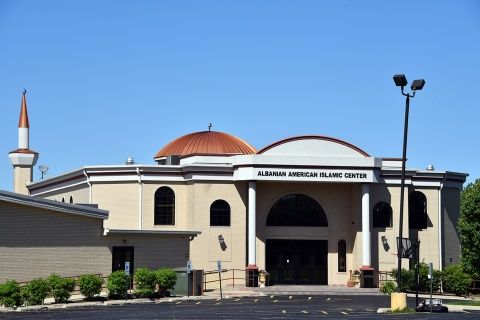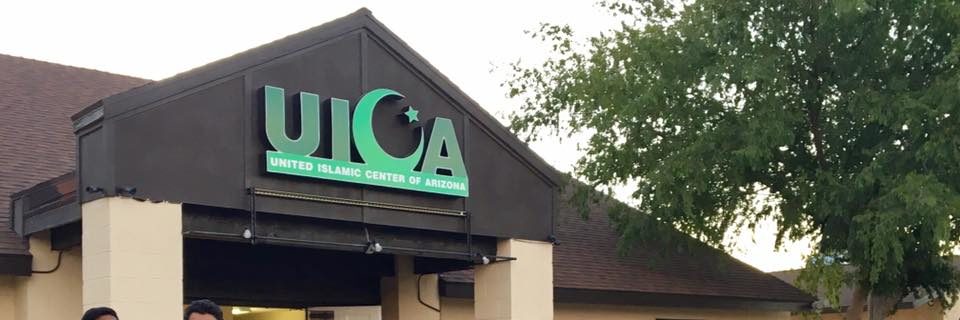
Mosques Where Faith and Families Flourish
Delivered by Imam Didmar Faja,
at AAIC in Chicago on October 25, 2025
Mosques are often treated merely as places where we pray and socialize. Yet, in truth, they are far more than that. They are the heart of our spiritual and social life — places where families develop, values flourish, and generations are built.
Being proactive in the mosque is not only about personal piety; it is about preserving the family and even the very identity of a nation.
The Mosque: The Foundation of Family and Community
During the blessed life of Prophet Muhammad ﷺ, the mosque was not just a space for prayer. It was the center of education, counsel, social justice, and family life. Families were nurtured within its walls — marriages were arranged, disputes were resolved, and children learned the Qur’an and manners from the best of teachers. It was from the masjid that the Prophet ﷺ strengthened families and built a nation.
Similarly, our Albanian forefathers understood this connection between faith and national strength. During the League of Prizren (1878), our leaders gathered in mosques to plan for the preservation of faith, language, and identity. Their unity around Islamic and national values protected our people during times of great challenge. Faith was never separated from the preservation of family or nation — it was their foundation.
Building Families Through the Mosque
The family often begins in the masjid. Connections are made through community gatherings, and sacred marriages — Nikah — are performed within these blessed walls. For this reason, we must invest in creating matrimonial services that help our youth find righteous and compatible spouses who share their values.
A healthy community encourages both men and women to grow spiritually and socially. When they attend lectures, volunteer, or join committees, they become active contributors to sacred causes — from education to charity, from outreach to family services. Their example inspires others, and soon the entire community flourishes.
By being active members of the mosque, we gain the opportunity to serve others — to bring benefit, comfort, and support to those around us. Service is one of the highest expressions of faith. The Prophet ﷺ said:
خَيْرُ النَّاسِ أَنْفَعُهُمْ لِلنَّاسِ
“The best of people are those who are most beneficial to others.” (Reported by al-Mu‘jam al-Awsaṭ, al-Ṭabarānī)
When we volunteer, support programs, or even help organize a community event, we are not merely doing a task — we are embodying prophetic character.
In another Hadith our beloved Prophet Muhammad (pbuh) stated,
السَّاعِي عَلَى الْأَرْمَلَةِ وَالْمِسْكِينِ كَالْمُجَاهِدِ فِي سَبِيلِ اللَّهِ
“The one who strives to help the widow and the needy is like one who fights in the path of Allah.” (Sahih al-Bukhari)
Active participation transforms our mosques into places of mercy and purpose, where faith is lived through action. It is through such engagement that we help our community flourish and strengthen the bond between faith and service.
Raising the Next Generation of Leaders
Our children are the continuation of our mission. Through weekend schools, Qur’an programs, and youth activities, they learn not only religion but also identity and responsibility. We must bring qualified teachers and mentors who can connect with them in today’s world and make them feel that they belong to this community.
True leadership is not measured by what we achieve now, but by the generation we leave behind. Our goal must be to raise young Albanian American Muslims who will not only continue our legacy but exceed us — strong in faith, proud of their heritage, and committed to serving humanity. The question we must ask ourselves is: Are we developing such youth today?
Guidance and Support Through Life’s Challenges
Every family faces challenges — marital, financial, emotional, or spiritual. The mosque should be the first place we turn for guidance. Consulting our imams and community leaders is not a sign of weakness but a sign of wisdom. When we seek help, we strengthen ourselves and our families. When we ignore our struggles, we risk falling apart silently.
Likewise, civic involvement is part of our responsibility. We must elect and hold accountable officials who support policies that protect our families, schools, and moral values. Building strong families also means engaging in the broader society with integrity and purpose.
Standing Together in Times of Loss
The mosque is where we share our joys — weddings, births, and celebrations — but also where we stand together in grief. When a loved one passes away, the masjid becomes a place of comfort and unity. Our condolences, prayers, and presence remind the grieving that they are not alone. These moments of compassion strengthen the bonds of community and faith.
When We Are Non-Active Members
When we become inactive members of the community, three things begin to fade:
- Spiritual Nourishment – Allah created us as social beings who find strength through the community. When we replace the Islamic environment with secular ones, we create a spiritual vacuum that leaves hearts empty.
- Loss of Values in Our Children – If we are absent from the masjid, our children will seek belonging elsewhere. Society will not teach them our moral or cultural values. Many lose their connection, marry outside their faith, and struggle later with decisions rooted in spiritual emptiness.
- Weakening of the Ummah’s Unity – The Prophet ﷺ said:
المؤمن للمؤمن كالبنيان يشد بعضه بعضاً
- The believer to another believer is like a building; each part strengthens the other.” (Bukhari & Muslim). When we disengage, the structure weakens. Our programs, our schools, and our youth initiatives depend on every one of us.
Conclusion
The mosque is not just a building — it is the heartbeat of our faith, family, and future. When we nurture it, we nurture ourselves. When we build it, we build generations.
Let us honor our past, serve our present, and secure our future by being active, faithful, and united members of our community — where faith and families truly flourish.
